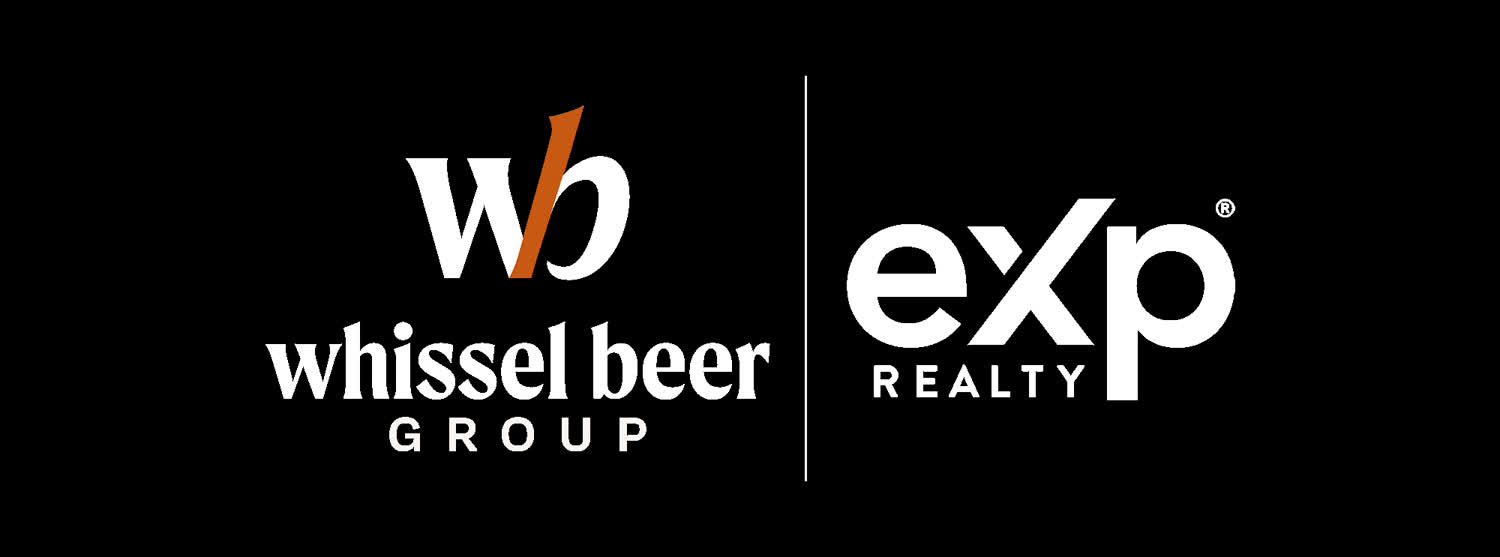Kyle and Jason talk the Stock Market and the swings the market has seen over the last few months. They then go into what that means for the real estate market and discuss how tightly connected the two markets effect one another.
Join our Facebook Group!
- Welcome, welcome. You are listening to The Whissel Way podcast. My name is Kyle Whissel, your host with the Whissel Realty Group. Joined by my co-host, as always, Mr. Jason Hall with Team Home Loans.
- Good afternoon, sir.
- And Jason, on today's podcast, I want to talk a little bit about the stock market and how that kind of ties into the real estate market into the mortgage market, because the stock market over the last month or two has been crazy. I mean you've seen some of the biggest swings in stock market history.
- We've seen some of the biggest point losses.
- Up and down.
- In December—
- I mean, it's been moving. December is usually a pretty stagnant month in the real estate market.
- Not this December.
- It has been insane how much it was moving in December, and in January it's continuing. I remember back in 2007-2008, where you would see these 500,000 point swings in a day, but that was because the whole economy was collapsing when that happened the last time. This time's different. There's no collapse happening, but we're seeing massive, massive swings in the stock market, and, so, what I want to get from your perspective—how is this crazy stock market affecting things from the mortgage side if somebody's looking to buy a home right now?
- Yeah, so, I've been telling you this for years, that as stock market goes up or down, rates tend to follow that. And so, kind of the saying goes "every reaction there's an action," and most of us want to see the rates go down, our stock to go up and our values. We just normally don't see that happen together.
- Okay.
- Very rarely. And so, one of the things we're seeing is the psyche of a seller and a buyer. When you look at—you used to be able to get your quarterly statement, then it was a monthly statement, now you can actually see your stock market portfolio as it happens, and people are seeing maybe like in December losing 1,100 points in a day—I think on Christmas Eve— and you're freakin' out. You don't want to buy, right? You're thinking "Oh my gosh, we just lost 5%, 10% of our portfolio overnight," and that impacts. Well, now we're starting to see the stock market this year in 2019 starting to rebound, and we're starting to see buyers kind of get a little more comfortable, sellers getting a little more comfortable, so things start to change, but one of the things I wanted to kind of hit you and your listeners, Kyle, is did you know on Election Day, November 8, 2016, what the stock market closed, before we found out that Trump was elected, and, again, reminder, everybody thought for certain Clinton was getting elected—there was no chance Trump would get elected, and if he did, the stock market was going to collapse. That was the media telling us, going into that week. Well, it closed at 18,332.
- [Kyle] You—
- The Dow.
- [Kyle] Asked me a question, you never gave me–
- I said 'Did you know"–
- An opportunity–
- I gave you some time
- To respond.
- So, they closed, you could have Googled it. But it closed 18,332. Now, when Trump was selected that night, we saw the early trading drop 1,000, 1500 points 'cause the world was ending, right? And then it rebounded right away. Why? Business, right? We got Kristen in here, the Chamber, San T, business owners start realizing "Hey, it going to be a better opportunity for us to grow our business." That tends to go conservative for businesses. Well, did you know the highest we've seen, and I'll just–it's not even the highest we've seen stock market, but exactly two years from Election Day, so November 8, 2018, the DOW was 26,180. That's over a 42% increase. Now, to my friends on the left, including my and we've talked about him a lot: you know what–it wasn't Obama who did that. Right? It literally is the mindset of people out there having Trump there, so even the view who hates Trump, and we have a lot of people that want to see him go, 42% increase in the stock market. Well, that impacted rates. Going into Election Day, rates were around 3.75 30-year fixed. At that point when the stock market was near it's high November of '18, rates got in the low-to-mid fives. Right? So I just want to you guys to see that analogy as those things go up; it happens.
- So, just to recap that: at Election Day we were running around 18,000 in the stock market; rates under 4%, we're talking 3.75%; and then, two years later, stock market's running at 26-plus thousand. Rates are now 5%.
- Right, right, so I just wanted you to kind of see that analogy, but I also really wanted to let buyers and sellers know you're never going to time the market perfect. All the experts who thought Trump was going to crash the market were absolute opposite, right? If you would have invested $100,000, maybe in a line of credit on your house if you didn't have one, it'd be up 42%, just in the Dow. That's just a general rule of thumb, right? So it's just absolutely amazing, so, in thinking about this kind of preparing for this show, I think it's still a great time to sell. If you're thinking about downsizing, if you're thinking about leaving San Diego for any reason, maybe you've been in your house two-to-five plus years, it's smart to take advantage of the tax laws that we put in place 1994—and I saw "we" being a Christian Conservative—the Conservative Republicans put that in place to where you can gain $500,000 on a sell of a home, as a married couple and pay zero federal and state income taxes. That's a great opportunity, and I think a lot of sellers aren't really thinking about that, 'cause it's a pain to move, but if you can save $100, $200 grand, in future income taxes for you or your heirs, wouldn't it make sense to make the move? I mean, I'm sure if my parents had that much in equity, I'd make 'em move.
- [Kyle] Right.
- Right? 'Cause I don't want me and my siblings to pay that tax bill. And so these are some of the things I just thought about – wanted to bring to you guys with the stock market, the rates, how that impacts the psyches of both buyers and sellers. So you've digested that, you've heard me say this over the years, but what are some questions you have or things you're thinking about?
- Well, I just find that it's interesting, I've done this for literally half my life now, which is kind of crazy to think about, but what we've seen more so in recent years than in the earlier years of my career is that the market is very volatile in real estate, and buyer demand fluctuates greatly with what's happening in the stock market and with what's happening with interest rates. Buyers are extremely rate-sensitive, so what we saw is this fourth quarter was the slowest fourth quarter we've had in close to a decade as far as the number of homes that sold.
- Units sold in San Diego.
- Specifically here in San Diego, and other parts of the country are feeling it as well. Maybe not as much as San Diego, but here in San Diego we saw the number of sales that happened this December versus the December the year prior is 25% less. That was a significant drop, and a lot of that ties into what was happening with the stock market. If you look at where it started on December 1 versus December 31, it was a massive drop that happened in there. And it's not even so much the drop, it could actually finish at the same level, it's what happened throughout the month, which the bumps up and down and up and down. Volatility in a stock market concerns people when it comes to home ownership.
- Absolutely.
- And so when people are seeing volatility in the stock market, they feel that that's volatility in the market in general, and they second guess: "Should we buy a home"? "The last time the stock market did this, the market crashed; is it going to do it again"? Because people remember these things, and so they think back "Last time I saw this, the market did this, so the market's doing it again—the stock market is doing it again—is the real estate market going to do the same thing again"? So, that really weighed on people a lot in December, but now here we are coming out into January, and the market's done–
- [Jason] Really well.
- Exceptionally well since January 1, and rates have actually pulled back a little bit, and we've seen—I mean, we just listed a property and I think I've got sixteen offers on it. I mean, we're way the heck over what we listed the home for. We haven't seen that in months. I mean we have not seen anything like that in many, many months, but here we are, sitting toward the end of January, and know we're starting to see multiple offers on things. We're starting to see listings that have been sitting for awhile—by and large because of what's happening. The stock market's getting a little bit more stable. We're starting to see that come back and now consumer confidence comes back along with that stock market. So there's absolutely a direct correlation between the stock market and what's happening when it comes to buying and selling homes. I mean, there's an absolute direct correlation with it.
- [Jason] Yep.
- And there is with the interest rate, so now the thing we're seeing is that the market is getting a little bit better, the rates haven't gone in line with that yet, but–
- Yeah, they're starting to slide up a teeny bit, but they haven't bounced like the stock market has.
- Right, so what you were saying is that a lot of times, as the stock market go up, rates go up. We're kind of in this unique scenario right now where the stock market's come back, but the rates haven't come back up–
- As much.
- In line with the stock market, and I think that's a big reason why we're seeing a lot of buyers pulling the trigger right now as their portfolio's going up, rates are staying relatively low—at least compared to where they were a month or two ago—and so that's getting a lot of buyers back in the game, and we're starting to see a lot of activity on our listings right now.
- Well, and we're start—it's going to be the Spring season here in a few months. Right, it's–
- Spring season's really already started. If somebody–
- Explain that, yeah.
- Owns a home today, the biggest mistake that I see homeowners make is they decide "Alright, I'm ready to sell the home," they call us and they want to put it on the market tomorrow. Not that I don't like that as a realtor. I mean, sure, I'll–
- A lot of times, you got to prep it and get it ready.
- I struggle to do my job, which is to get my seller the highest price possible for their home. If you give me a week to get your home ready to go on the market, versus giving me a month to get it ready to go on the market, I can do a lot to help you increase the value of that home if you give me a month. But so many realtors, they're not concerned about what they sell a home for. They're just concerned about getting it on the market, getting commission, and moving on to the next sale, but if you actually take a little bit of time to prep a home, and actually get it ready for the Spring market, it's amazing what you can do, because a homeowner could spend a very small amount of money to make a massive difference. An example is when I walked through yesterday in San T, and it was something where they inherited the property—a family member had passed away, and he had remodeled the kitchen, and he remodeled the bathrooms, but didn't remodel any of the other house—still had fake wood doors, and it has carpet that's been there for forty years. If we can just come in there, paint those doors, replace the carpet, scrape the ceiling and paint that, now it comes across as a completely remodeled home. You're talking this thing—as it sat—would probably sell for roughly $360,000. These guys put $10,000 into it, now you're talking this thing selling for $400,000.
- Right.
- So a $10,000 investment, you're talking a $30,000, $40,000 increase in value.
- That's a 400%–
- But I can't do that for you, if you call me and tell me you want your house on the market this weekend. So, if you're a realtor, think about that; that if you can actually put a little bit into these homes, not just think about it as: "Let me get this on the market and get my next commission"—actually take a little time and improve these homes, now you're the one with the highest sale in that community. You got to think, the next time somebody else in that community is looking to sell, they're going to call the person who just set a record for that sales price. So, keep that in mind, guys. Pay attention to what's happening in the stock market. Get that message out there, because the consumers care about the stock market, they care about the rates, so it's your job to get that message out there, get them motivated, and those people that are thinking about selling in the Spring, that starts today. I want to thank you guys so much for tuning into The Whissel Way. If you want to keep the conversation going, join our group on Facebook: The Whissel Way. You can simply go to thewhisselway.com; Whissel is w h i s s e l. Thank you so much for listening to the podcast. We'll talk to you guys next week.








